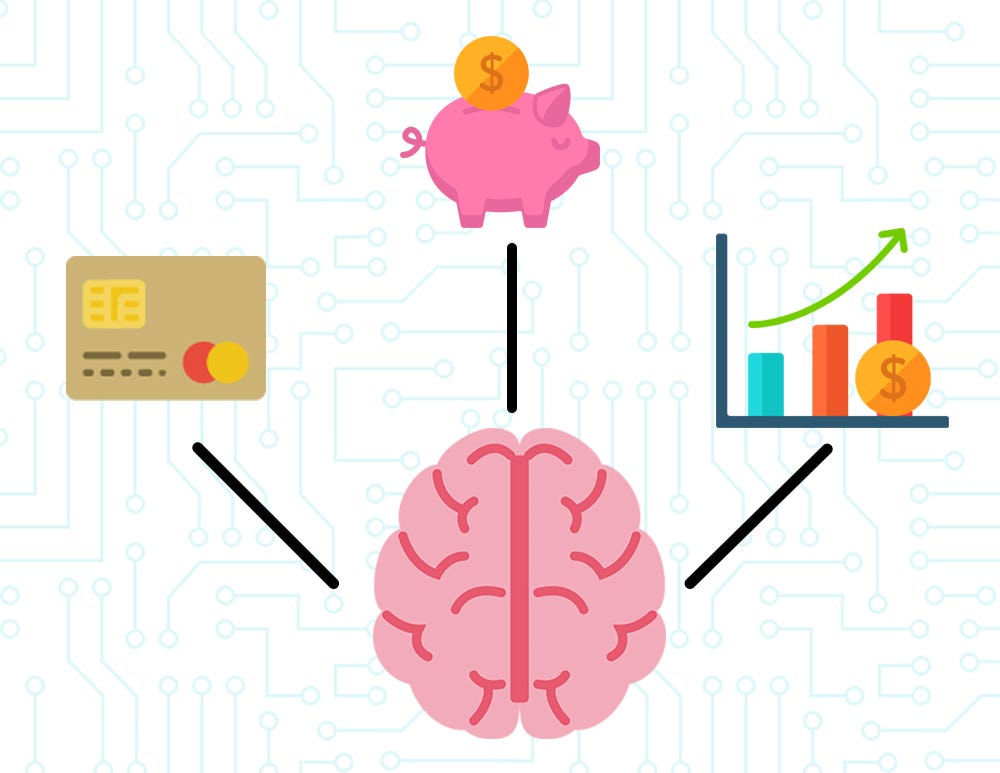2017 was the year I tracked my finances. I started doing this because I wanted to remove the mystery of where my money was going. I wasn’t overspending per se, but found it challenging to know exactly what I had spent across credit cards, debit cards, cash, etc.
Although there are a lot of personal expense tracking software, uncharacteristically, I chose a low tech option — a simple Google Sheet. I then have a tab for each month and columns to track the Date, Shop, Amount, Notes and then a category of the expense (I have the option of fuel, entertainment, food, shopping, gifts and other).

Now we’re in 2018, I now tracked my specific expenses for over a year. Here is what I’ve learnt.
Money isn’t going where you think
Ok sure, you might have a rough idea. But how much did you spend on lunches last month? For me, it was way more than I expected. Whilst, how much I spent on fuel was a lot less. This enabled me to adjust my budget accordingly and also be more mindful of spending in those areas. It’s all well and good to *say *you have a budget, but are you really sticking to it?
In my case, I wasn’t, but that’s not a problem. Now I have the data, I can make informed decisions about where my money is going.
It also enables me to plan around larger spending that may happen on an annual basis. Car tax for example is something I pay yearly, however, in my budget it is included as a monthly expense. I then put this money into a specific account that I can later use on that date. I apply the same principle for clothing as again, it is something I do bi-monthly rather than specifically each month.
The bank should work for me
A common misconception, at least one that I believed, is that banks do not really owe you anything. They do! My previous bank that I had held for the previous 8 years paid me very low interest and didn’t offer any other benefits. I then started searching other bank accounts and found many paid 5% interest (Nationwide Flexdirect), or offered store points when you use them (Tesco Current account).
The other misconception I had was that it would be difficult to change accounts. Most banks in the UK will be registered with the current account switching service which means they handle transferring direct debits, standing orders and forward any incoming funds to your old account to the new account. This process usually takes 7 days.
I personally have it setup so I get paid into 1 bank account and then have standing orders out to all my other accounts (saving, spending etc). This enables me to switch bank account a lot with relatively low friction. Changing regularly does negatively affect my credit score but since I am not applying for a mortgage or loan any time soon then this is not an issue (and by the time I want to, it will have improved).
The point is, don’t just stay with your current bank. Martin Lewis keeps a great updated list of the best bank accounts and breaks down their details as well as all the ins-and-outs of qualifying for them.
Automation is key
Without doubt the best thing I did to optimize my finances this year was putting it on autopilot. Finances and money I find interesting but, all in all, they are a drab subject. By automating everything, I am free of an ambiguity about where money is going or will go and I don’t need to spend my own time dealing with it manually.
Here’s what happens when my paycheck comes in:
-
Credit cards are paid
-
Bills are paid
-
Standing orders send money to my spending account, saving(s) accounts and ISA — I would recommend setting up different “pots” as I spoke about earlier for different financial jobs. For example I have an account for my emergency fund, one for car fuel, one for annual car expenses (tax and insurance) and another for general saving (I use a bank that allows me to create “pots” within this account for holidays and any other items I am saving for).
-
Money left in my primary bank account (the one that gets the paycheck) is left until the end of the month and then moved into my savings account.
My investments are also all automated as I use a service called Nutmeg to balance my portfolio according to my risk profile.
If you struggle with setting aside money to save, try a service such as Moneybox which takes weekly deposits from your account as well as rounding up change from purchases.
Any other tips that you use?
Comment below or tweet me with any other personal finance advice you’ve applied. I’m not a qualified finance professional by any stretch of the imagination, so your circumstances may vary, but overall the principles of automation and tracking you money can be utilized no matter what your situation. By applying the advice above, I have been able to stick strictly to my spending budget, increase my savings and pay off my debts — and you can do that too. All it takes is an free afternoon and a memory of all those internet banking passwords.